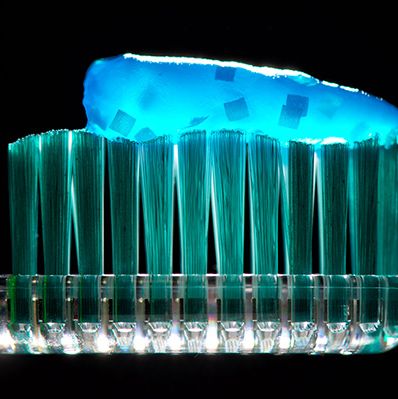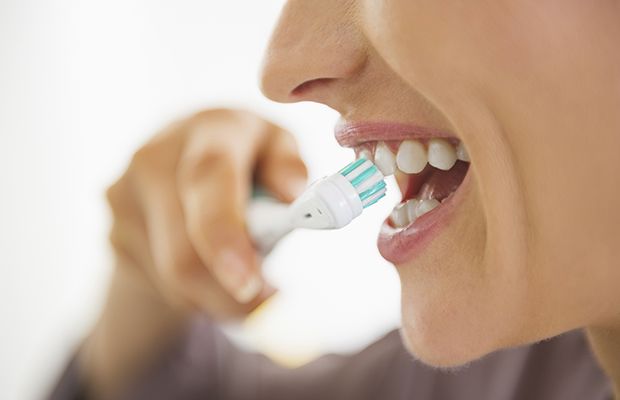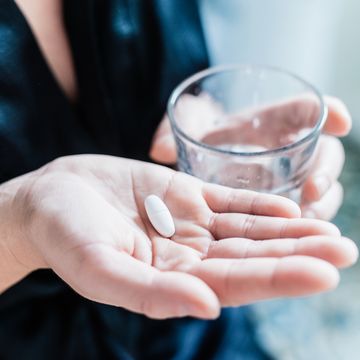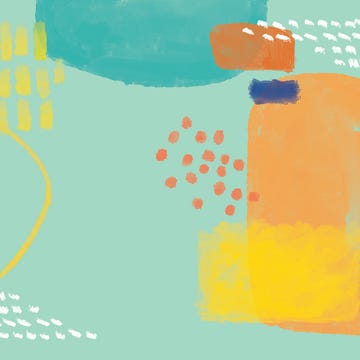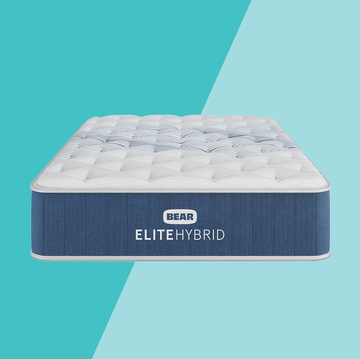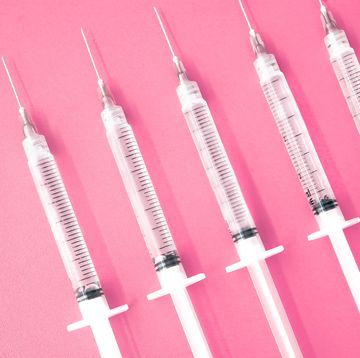The situation: As you rub in your moisturizer and dab on some eye cream, you make a mental note that you're low on toothpaste and should pick up some new deodorant, too. Anything else while you're at the store? And then it hits you: Um, when was the last time you got a new toothbrush? At the dentist, like, a year ago?
What you're worried about: That you've been reintroducing old bacteria into your mouth, or perhaps that you've actually been undoing all those months of faithfully flossing. OMG, have you been gradually yellowing your pearly whites all this time? (Want to pick up some healthier habits? Sign up to get daily healthy living tips delivered straight to your inbox!)
The very worst that could happen: Periodontal disease and tooth loss, due to a major buildup of plaque, says Melissa Thompson, DMD, who owns three Aspen Dental practices in Massachusetts. Over time, she explains, the firm bristles get frayed and become incapable of clearing the areas between the teeth and the plaque resting on each tooth's surface. "Plaque not only causes cavities, but when it's not removed from around the gum line, it can cause inflammation and irritation leading to gingivitis or gum disease. If gingivitis is not treated, it can progress to periodontal disease and, possibly, tooth loss."
MORE: 7 Weird Things Your Teeth Are Trying To Tell You
What will probably happen: Some plaque buildup, but your toothbrush will probably become so frayed and unappealing that you'd almost always replace it before you did any real damage, says John Grbic, DMD, a professor and director of the division of oral biology at Columbia University College of Dental Medicine. "A well-functioning toothbrush has bristles that bend," he says. "When your brush is old, it's hard not to notice," he says.
One common issue, Thompson explains, is that people will overbrush in order to make up for a frayed toothbrush that is no longer doing its job as easily. Hallmarks of this include ultra sensitive gums and teeth and V-shaped notches near the gumline.
Also, you won't always necessarily re-infect yourself if you were to continue using the same toothbrush after being sick. "Although bacteria and viruses can live up to 3 days on the toothbrush, your body should have built up the antibodies to fend them off and avoid a relapse," says Edita Outericka, DMD, at Dynamic Dental in Mansfield, MA, and coauthor of A Cup of Coffee With My Dentist. But if you're particularly worried, it can't hurt to swap in a new one, since the American Dental Association recommends people replace their toothbrush approximately every 3 to 4 months anyway. A good way to keep track, says Thompson, is to change it every season—unless it clearly needs to go sooner.
